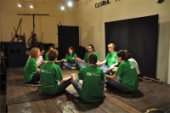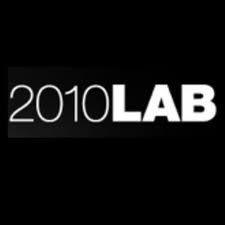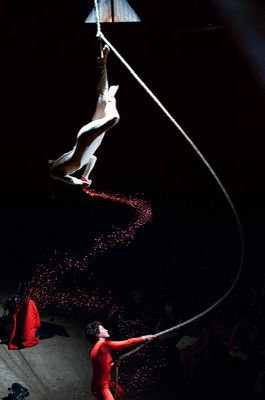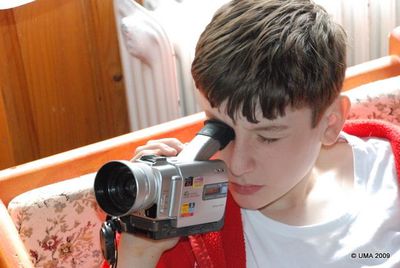17 Jan 2011
The European Dimension of the Romanian National Theatre Festival

For many years the annual event was open to only theatre critics and Romanian personalities. As such, it was not a festival made for the general audience. From 2005 festival’s objectives were more clearly defined. An agreement was signed with the Ministry of Culture and UNITER [Romanian Theatre Guild], the festival organizer, in which the artistic director of RNTF is proposed by the president of UNITER, the famous actor Ion Caramitru, and is voted by the Senate (consisting of actors, directors, stage designers, theatre critics and so on). The appointed person would have a mandate of three years in the role. This procedure of selecting the artistic director was free from any political influence.
The Role of the Artistic Director
The Artistic Director is required to see all the theatre productions in the country during the current theatrical season, which is from September to June. The aim of the RNTF is to present the best new productions from the last season. Because of the poor infrastructure of the roads and trains, travelling across the country to attend these productions can be hard work. Sometimes the artistic director spends more time traveling then attending performances.
From 2005, RNTF developed its programme to include international productions and opening it to the general audience in Bucharest. This was very successful because it generated dialogue between the local and overseas artists, as well as the public. It gave people the chance to see more of theatre from Europe and the world. This process represented Romanian theatre’s step away from isolation. As such, from 2005, a lot of European contacts were formed. The artistic director of 2005, 2006 and 2007 was Marina Constantinescu, a famous Romanian theatre critic.
European dimension – checklist
This checklist was created under the immense influence of ideas expressed during meetings organized by European Festival Research Project and the fruitful advice of Raluca Pop, the creator of a useful Romanian blog about arts financing: http://banipentruarte.wordpress.com/.
First level: RNTF’s programme
With the occasion of Romania becoming an EU member state in 2007, RNTF also gained a European dimension mainly to its content. From 2008 to 2010, Cristina Modreanu invited productions representing new realities in theatre. For example, productions of Alvis Hermanis, Rimini Protokoll, Joel Pommerat, Jean Luc – lagarcde, Stan’s Café, Romeo Castellucci, Krzysztof Warlikowski, Rodrigo Garcia. Practitioners and theoreticians like Richard Foreman, Richard Schechner, Hans Thies Lehmann, Ariane Mnoushkine, Kama Gingas, Lee Breuer, Michal Kobialka were also invited. Workshops, conferences, and meetings with the audience, students, and theatre professionals were also organized during the RNTF.
Another element was also added: from 2008, RNTF created its own collection, aimed at translating important books about theatre criticism that were not being translated in Romania until today. In 2010 this collection was completed with the publication, 50 Key Theatre Directors of the 20th Century edited by Shomit Mitter and Maria Shevtsova and published by the Routledge Publishing House.
Second level: Financing Structure
The Festival has two main financing state institutions: the Ministry of Culture and the City Council of Bucharest, through its cultural center: ArCub. RNTF has few sponsors and rarely attracts private companies to support its content. This changed in 2010. RNTF received support in kind from three private companies, the most famous being the international renowned automotive brand, Volvo [The Official Car of RNTF].
The main obstacle of the fundraising procedure is that the festival has no legal entity. There is no one person who is dedicated to the Festival throughout the entire year. Despite the fact that RNTF is in its 20th edition, it is still a project of UNITER, among other cultural projects.
Third level: team and networking
The festival has a small team, many of whom work about one to three month in advance of the Festival. Although communication between various departments tends to be efficient, there is still the need for RNTF to have at least three to five people working on it for the entire year.
In terms of networking, the festival has yet to establish a working partnership with other festivals in the region, among EU member states. It is also not part of European Festival Association. That said, UNITER is a member of different professional networks. This includes ANUC, Romanian section of AICT, Romanian Center of ITI, Romanian Center of OISTAT, National Center of PEJA, IETM, and Culture Action Europe.
There is still much more to be done. Because the festival’s budget is unknown for the following year’s program, there are many things that cannot be predicted and arranged in advance. On that issue, I gathered some opinions from three international promoters that were present at the latest RNTF:
Ian Herbert, theatre critic, Theatre Record: “Thank you for a most interesting visit. I was very well looked after and glad to see so many Romanian friends once more.”
An excerpt from Herbert’s article in Theatre Record puts into context the Romanian National Theatre Festival: “Romania has no shortage of theatre festivals. Sibiu and Craiova are internationally known, and there’s a very good one coming up in Cluj in December, but the big one for Romanian theatre people is their national festival, which has just finished in Bucharest. It aims to present the best of the couple of hundred new productions seen in the country each year, as well as inviting major companies and directors from abroad, all backed by a full program of lectures, films and book launches. A new feature of this year’s twentieth festival was its showing of the work of a number of leading foreign directors with Romanian companies – Tim Carroll with The Odyssey, Matthias Langhoff with Measure for Measure, Rodrigo Garcia with No Dogs Allowed.”
Tristan Sharps, Artistic Director, Dreamthinkspeak, Brighton, UK, declared: “I was very impressed with the Romanian National Festival program this year. I thought the choice of productions was brave and wide-ranging. I was particularly impressed with how the festival has placed itself within an international context. For me, the festival is not just an important national event, but also an increasingly important international event where outstanding Romanian work can be seen alongside outstanding pieces from around the world. It was a real treat to see the work of Serban and Purcarete alongside work by Castellucci. Such dynamic programming creates an important dialogue between Romanian theatre and theatre from other countries and will inevitably lead to productive cross-fertilizations.”
Irina Wolf, editor of Aurora Magazine, Vienna : “After the 2010 edition of RNTF I would say that indeed, RNTF has an important European dimension: important international productions were invited and Romanian productions created by foreign directors and foreign productions created by Romanian directors [such as Silviu Purcarete’s Exit the King] were present.
I had a very positive feeling about the numerous conferences, with many invited international guests. Another positive aspect was the presence of international promoters that could offer visibility through articles, inviting the Romanian productions and inviting Romanian artists to participate to their events outside the limits of Romanian borders, in Europe.”
Disclaimer of the author: Florentina Bratfanof worked for the past three years at the Press Office of Romanian National Theatre Festival. Her perspective is drawn from working and observing the management of the RNTF since 2008, as well as being a member of the audience from 2000 to 2010.
Further research on the subject of Romanian National Theatre Festival, in English:
www.uniter.ro
www.fnt.ro
www.cultura.ro
www.arcub.ro
http://www.artactmagazine.ro/programmer_s_journal__2_.html
www.culturalpolicies.net
http://www.efa-aef.eu/en/activities/efrp/
http://banipentruarte.wordpress.com/
http://www.budobs.org/
About the writer:
Florentina Bratfanof has worked in the theatre field in Romania in the past 10 years, first as a Press Officer for ACT Theatre, the first independent theatre in Romania, then as a cultural journalist for an online platform website also about theatre events and projects. She has been involved as well the Press Office of several theatre festivals: the 2008-2009-2010 editions of Romanian National Theatre Festival, Bucharest, Romania; Underground Arad Fun 2009, Arad, Romania; 36th International Festival of Alternative and New Theatre, Novi Sad, Serbia.
Similar content
posted on
10 Dec 2010
posted on
08 Feb 2010
posted on
01 Dec 2010
posted on
10 Mar 2010
posted on
27 Jan 2011
posted on
02 Nov 2010





